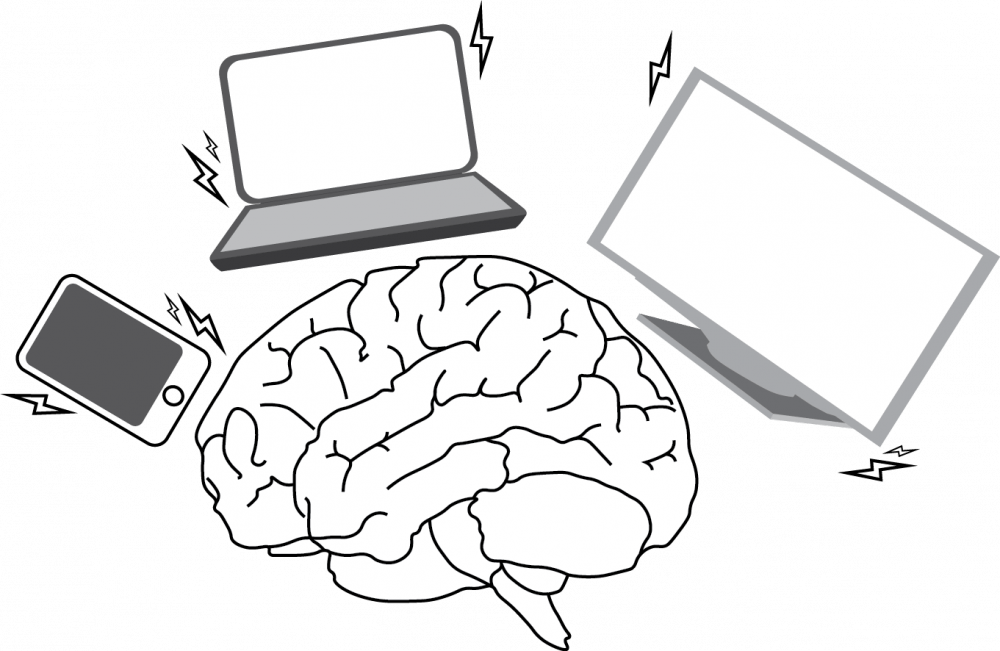The use of technology to address mental health problems is an active field of research and study on Grounds. The Center for Behavioral Health and Technology, the Program for Anxiety, Cognition and Treatment Lab and a new class all consider how mental health can be better studied and treated using technology.
“The Center for Behavioral Health and Technology is focused on … the intersection between behavioral health and technology to utilize various technologies to be able to provide treatment and interventions for a number of different health problems,” said Lee Ritterband, professor of Psychiatry and Neurobehavioral Sciences and director of the center.
Recent projects at the Center for Behavioral Health and Technology include a web-based treatment program for individuals suffering from insomnia and work with the University Cancer Center on interventions and treatments that extend beyond the physical medical center, Ritterband said. These interventions are fully automated, tailored to the patient’s condition and web-based so they are accessible at all times.
“We feel that this a significant path forward in the ability to provide interventions to a much larger audience than we’d otherwise be able to do, it makes treatments more available, more accessible and at a lower cost,” Ritterband said. “So it has a pretty significant impact.”
Similarly, the PACT Lab, under Psychology Prof. Bethany Teachman, researches the cognitive processes behind mental disorders such as anxiety, self injury, depression and phobias and the use of technology as an intervention strategy for these mental disorders. The use of technology minimizes the effect of geographic barriers and stigma-induced avoidance of treatment, according to Alex Daros, a postdoctoral research associate with the PACT lab.
One primary project of the PACT Lab is MindTrails, an online intervention for the reduction of negative thinking with cognitive bias modification. The platform is available online so treatment is available to patients at any time.
A second focus of the PACT Lab is a project working with smartphones to monitor factors that may contribute to mental illness. The project alerts users on their smartphones, asking for updates on their mental health condition, thus enabling doctors to see a more complete picture of the factors influencing the patient.
Daros is also leading a new fourth-year class this semester called Using Mobile Technology in Mental Health Research, which focuses on using mobile technology to better study mental health. The class, cross-listed in psychology and engineering, covers various topics including the ethics behind this research, social media as an indicator for mental health and the effectiveness of different technology-based interventions.
“There’s like 100,000 mental health apps out there, so we want to know what the effectiveness of these different apps are and whether they are empirically built off of real research,” Daros said. “We want the apps to be as effective as possible if we are going to move towards that field.”
Ritterband echoed the importance of empirically-based interventions as this field develops.
“There’s a pretty strong movement to try to move forward with this idea but if we're gonna be putting these kinds of things out there, they need to have some real research support behind them,” Ritterband said. “It's not like there’s a shortage of programs out there 一 but there are not many that are empirically validated and easily accessible at this point, so I think that’s where the future is going to be.”
According to Daros, technology-based interventions for mental illnesses are unlikely to replace psychologists or in-person health care. Instead, this technology will be used to enhance the effectiveness in delivering existing mental health treatments and services.
At the Center for Behavioral Health and Technology, Ritterband works with a multidisciplinary team including psychologists, physicians, computer scientists, engineers among others. The cross-listed class Daros is teaching reflects his experience working with engineers on projects at the PACT Lab. As the field develops, the interdisciplinary aspect of this work is emphasized.
“One of the interesting things is that it’s moving so fast because technology is advancing studies that we run might be considered obsolete in just two or three years,” Daros said. “If people are interested in this field, getting some background in computer science and statistics is really important too.”







